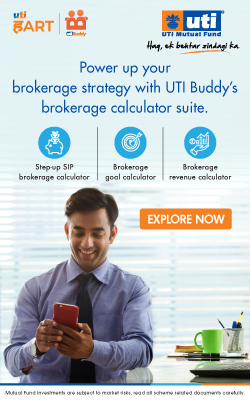Direct plans have been around for over 4 years now.
Ever since their introduction in January 2013, direct plans have seen a steady rise in investor interest. Direct plans were introduced for savvy investors who know how to invest in mutual funds independently. But today, in the quest to save commissions paid to financial advisors, many novice investors too are inquiring about direct plans.
Have your clients asked you about direct plans? You need not fret; Team Cafemutual spoke to a few financial advisors on how they encourage their clients to continue with their services. Let us read what they have to share.
Value added services
As an advisor, your biggest advantage is the one-stop-shop nature of your business. Speak about the variety of services such as taxation planning, insurance planning and succession that you provide them under one roof.
Shifali Satsangee of Funds Vedaa feels that making clients realise your value added services helps to retain them. “When my clients tell me that they are planning to go direct, I tell them that I will be happy to assist them with the transaction aspect of direct plans. Also, I make sure to inform them that I will not be advising them on their investment portfolio or provide any value added services such as tax planning and comprehensive financial planning,” she adds.
Be transparent
Shifali believes that advisors should speak about direct plans in the first meeting. “While onboarding my clients, I tell them about direct and regular plans. This helps them choose a suitable investment plan right from the beginning. It also helps avoid any future misunderstanding,” she says.
Speak about your role
As an advisor, you know your clients better than anyone else. You understand their needs, goals, risk, and investment horizon. Show your clients how well you know them and how you can be accessible to them 24x7.
Vinod Jain of Jain Investments says that he convinces his clients not to go direct by highlighting the value he provides. “Even if they have capital, they still need a coach to guide them. I tell them that investing 100% of your capital wisely is more important than saving 50% of it. Cheaper is not always the better option,” he says.
Prathiba Girish of Finwise Personal Finance Advisors believes likewise. She tells her clients that unless they possess a thorough understanding of mutual funds they have no option but to enlist the help of a mutual fund advisor. “I tell them that I not only manage their finances but also ensure that all their financial decisions are taken rationally and shield them from behavioural biases,” she adds.
Rajat Dhar of Cogent Advisory said, “Along with helping a client make right investments, an advisor also plays the role of a coach for their clients on how they can achieve financial goals.”
Speak about your fees
Khyati Mashru of Plantrich Consultancy says, “I tell them that they can opt for direct plans but if they want me to manage their assets, they will still have to pay my fees. In addition, I inform them of the benefits of continuing my services.”
Personal touch
Investing through direct plans is devoid of personal touch. The client needs to source data from the web to understand which funds are suitable for him/her. By providing your clients with tailored, personalised solutions, which address their needs, you gain an advantage over direct plans.
Rajat mentions that an advisor suggests a financial product to a client only after a holistic understanding of the client’s background, risk appetite, long-term and short-term goals. Additionally, the client can relax knowing that the advisor will always be present to address all queries and doubts.
Hiten Shah of Hiten Shah Financial Advisors says, “I tell them about the benefits they have if they stick with me. For instance, I explain to them how an advisor reviews and manages the portfolio which an AMC person will not do.”








